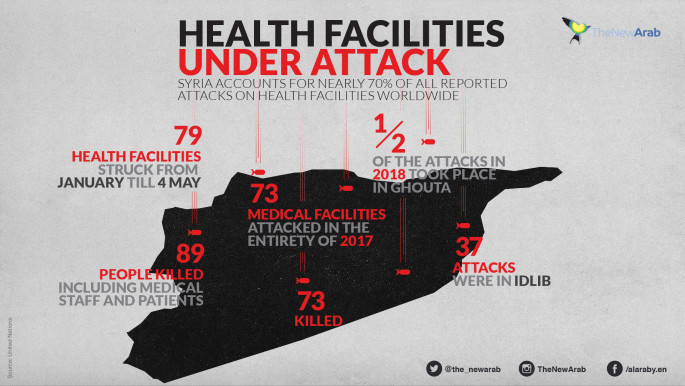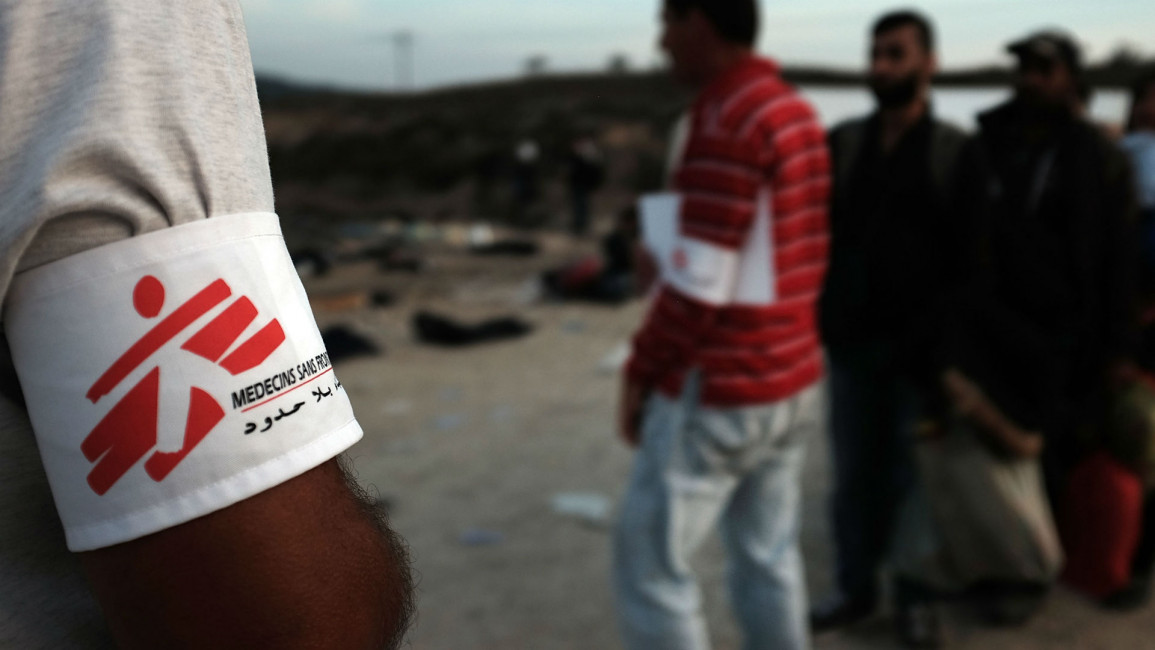Doctors Without Borders urges Syrian regime to lift 7-year access ban
 |
MSF has been repeatedly denied permission to work in regime zones, but has operated in opposition-held territory |  |
 |
|
In recent months, it has used military pressure and population transfers to flush fighters and civilians out of territory around Damascus, most notably the Eastern Ghouta suburb.
"The levels of trauma, both mental and physical, caused during the March offensive to take control of eastern Ghouta are beyond my comprehension," said Nicolai.
UN 'frustrated'
Hospitals backed by MSF in the rebel enclave treated more than 5,600 wounded in the first two weeks of the offensive alone.
"The number of affected people and the gravity of the needs mean that a significant and urgent medical response is required for these patients, regardless of who is in control of the territory," she added.
Prior to the assault, Ghouta's 400,000 residents had suffered five years of crippling regime siege that made food and medicine nearly impossible to access or afford.
The regime has imposed sieges on opposition territory across Syria as a military tactic, restricting access for relief groups and even the United Nations.
But even when it recaptures a rebel zone and the siege ends, the Damascus regime does not improve aid access, the UN said.
"The end of besiegement hasn't necessarily resulted in access for humanitarians," said the UN's regional humanitarian coordinator for Syria, Panos Moumtzis.
"From a humanitarian point of view, we're still frustrated about not being able to go in."
This year, UN aid had only reached a slim seven percent of two million Syrians in "hard-to-reach" areas, he said.
The UN has requested access tens of thousands of desperate people still living in Ghouta, but has been told by the government that it still is not safe.
"There shouldn't be any excuse for not going there," Moumtzis told journalists in Beirut last week.

![Saudi foreign minister Faisal bin Farhan [Getty]](/sites/default/files/styles/image_330x185/public/2024-05/GettyImages-2150172060.jpg?h=199d8c1f&itok=MA8qajOT)
![A cannabis field in Rif. [Getty] A cannabis field in Rif. [Getty]](/sites/default/files/styles/image_330x185/public/media/images/8F977E5E-7DE1-421B-8C40-E7D00442BEFB.jpg?h=d1cb525d&itok=ztBDDo2l)
